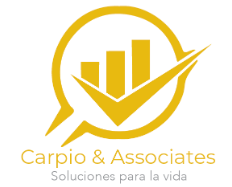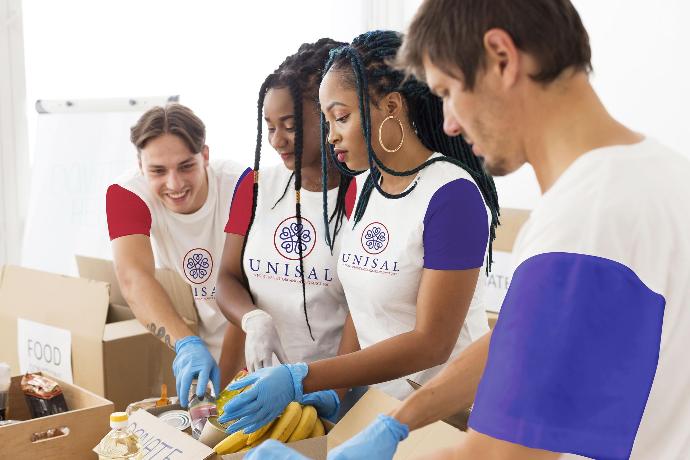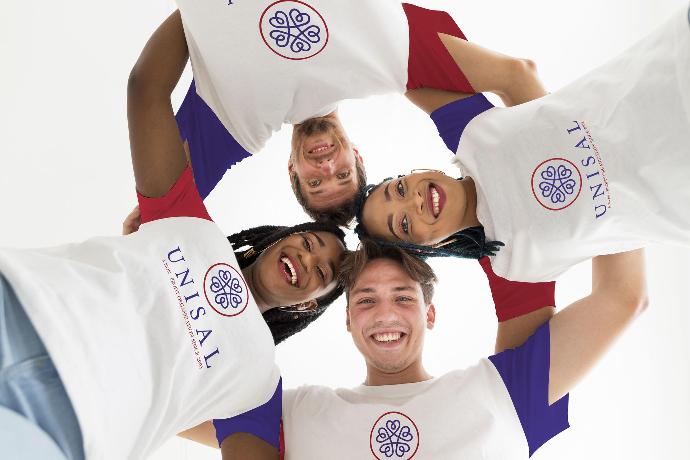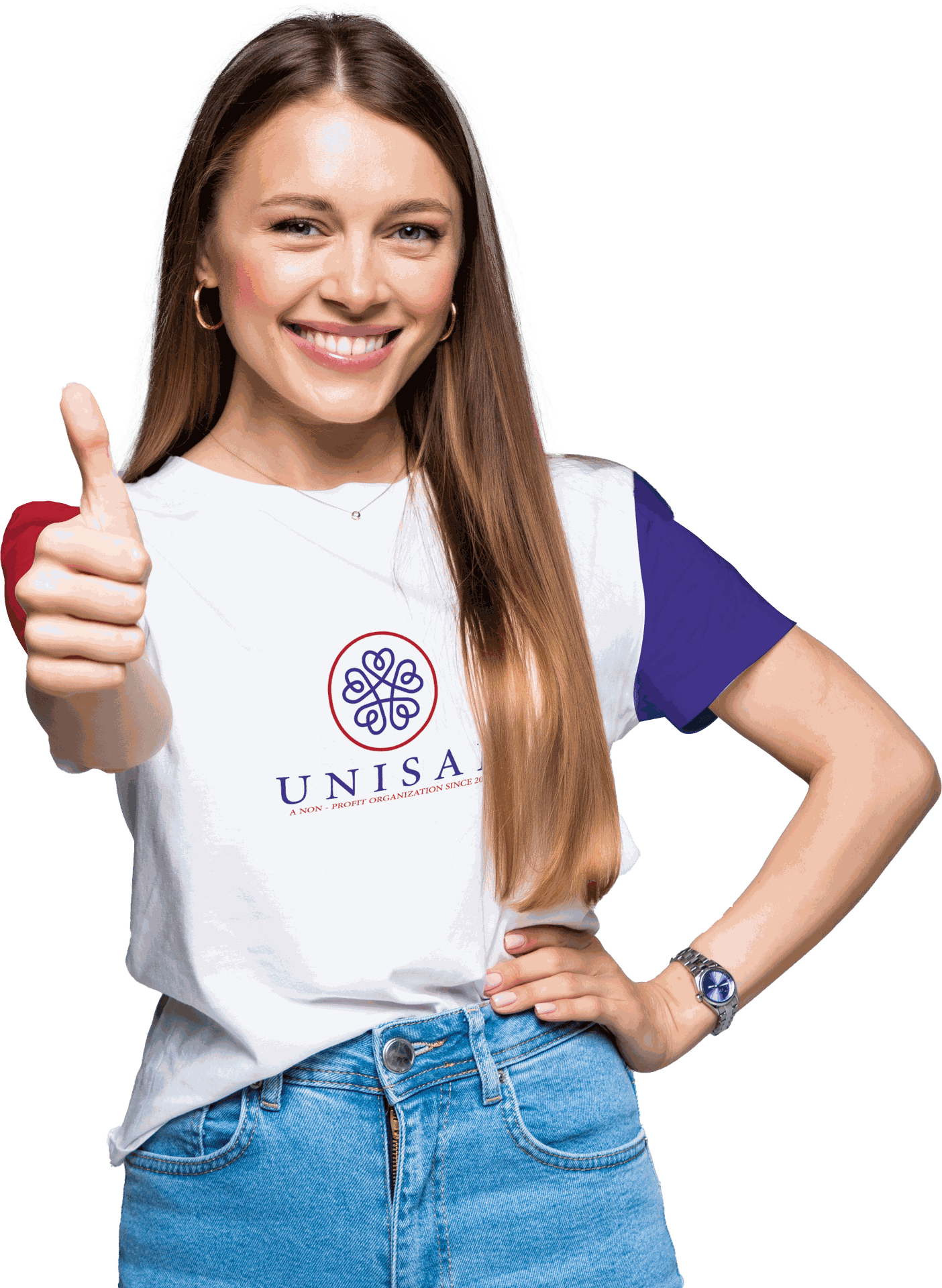75,000+ families have benefited from our services.
Contact our Helpdesk to receive assistance now.
United for a better world, our foundation embraces the cause with love and solidarity. Five intertwined Hearts symbolize the union of brother volunteers on the five continents, working together to make a difference, symbolizing unity and collaboration to make a difference in the lives of others.
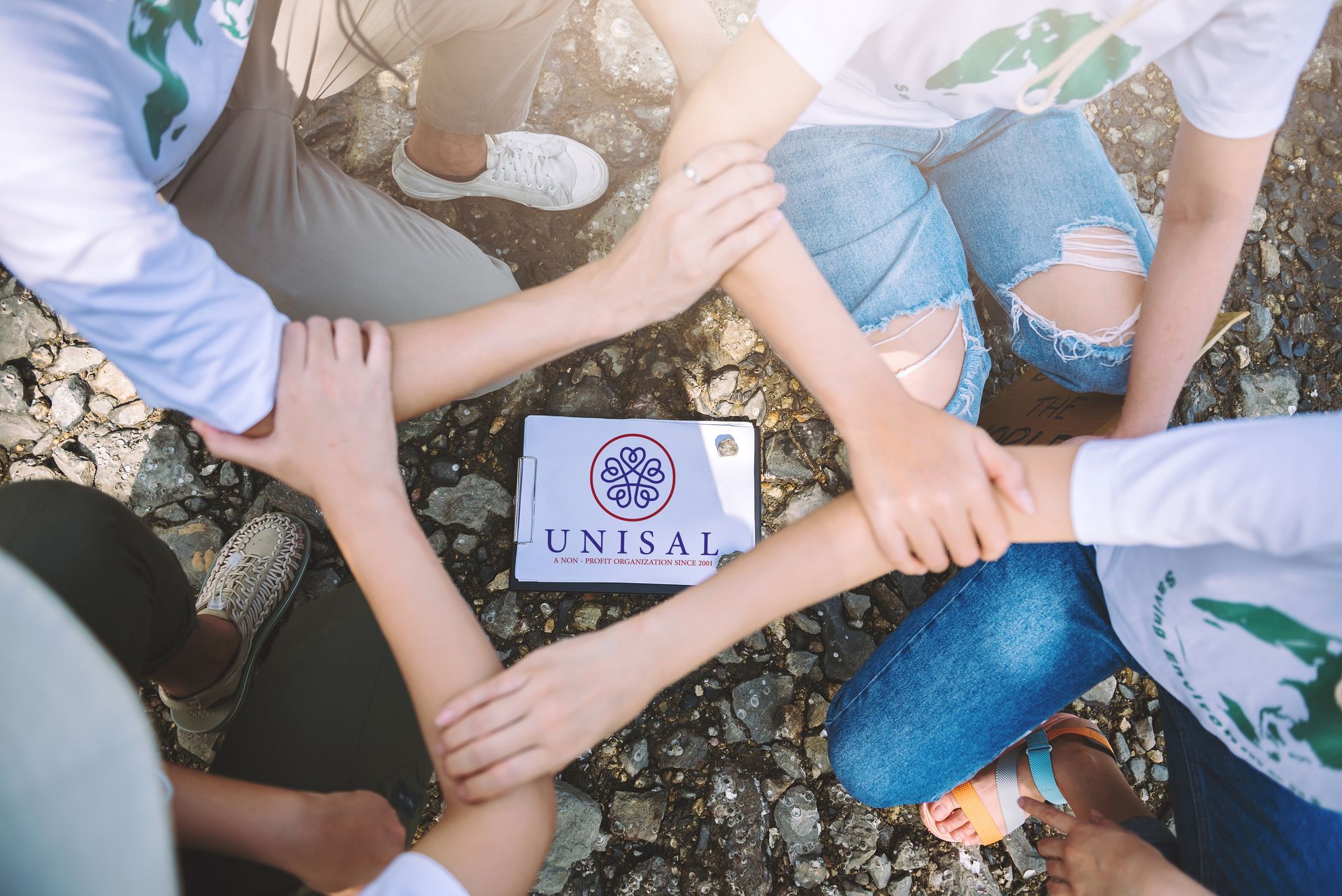
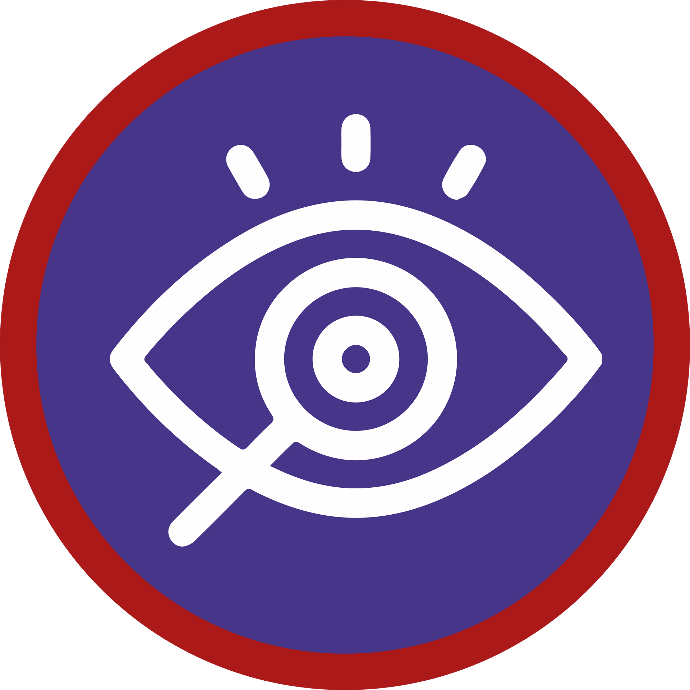
Vision
Support and promote educational, social, cultural and humanitarian aid programs, through partners and strategic alliances to achieve sustainable changes in society.
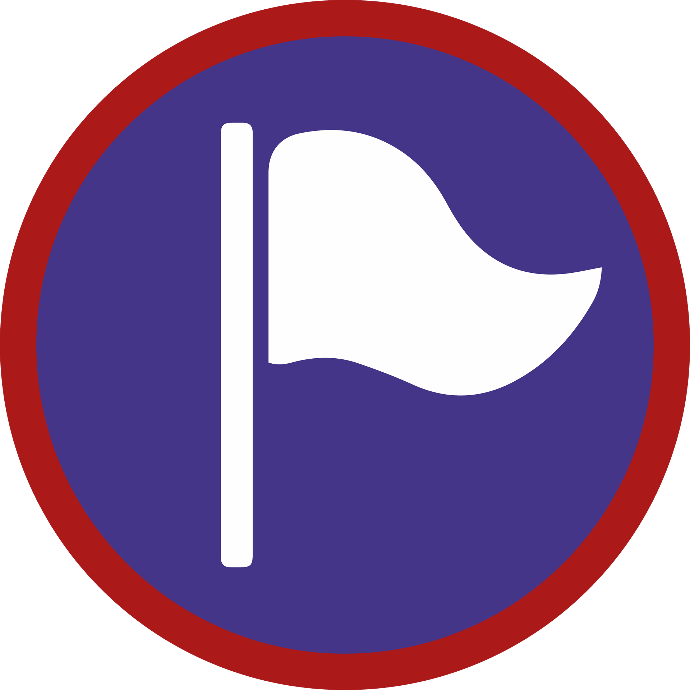
Mission
We work with families of all races, religions and origins around the world to be a bridge between communities and social systems, with the aim of creating generations aware of their obligations and human rights.
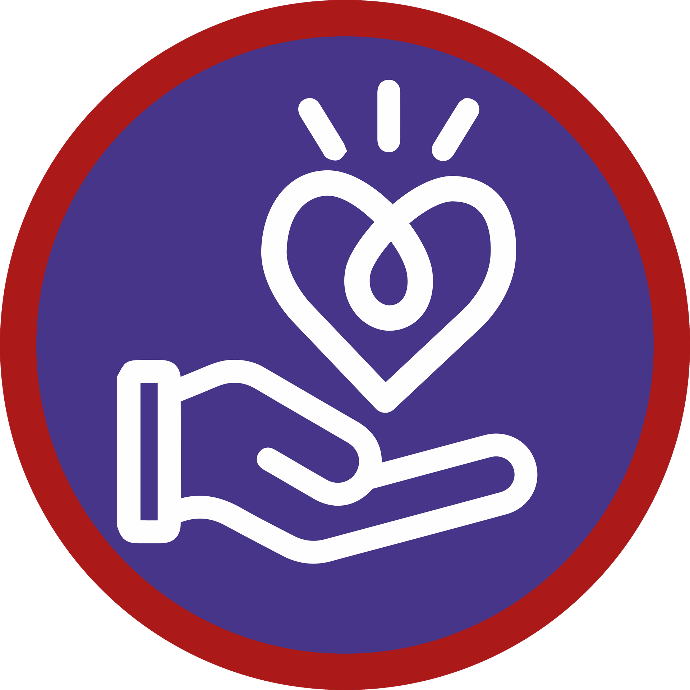
Values
• Social commitment: We work for the common good, understood as a collective construction of which we are all subjects and responsible, which promotes fair and supportive relationships between towns, people and cultures, in defense of human dignity.
• Equity: Our action is oriented towards greater justice in social agreements and towards the promotion of people's capabilities to exercise their freedoms.
• Respect: We recognize and defend the richness of human diversity as an essential value for social cohesion, peace and the dignity of people.
National Unity of Hispanic Allies (UNISAL) is a nonprofit organization based in Charlotte, North Carolina, that aims to help Latin American families with issues such as immigration, financial education, and humanitarian aid.
UNISAL was founded in 2001, by Ana Miriam Carpio after the earthquake in El Salvador of the same year. After such an experience and the devastating consequences that followed, she saw a need and began to help people who had suffered in this catastrophe.
For more than 20 years, more than 75,000 Latin American families have been supported through educational, social, cultural and humanitarian aid programs so that they can have a better future for themselves, their families and communities in the United States.
UNISAL opens new offices in San Salvador and Dallas, TX.
UNISAL opens a new office in Boston, MA.
Our founder Mrs. Ana Miriam Carpio talks about UNISAL origin
We have the experience of having interacted with our community for more than 20 years, and the deep knowledge of their needs has allowed us to create a portfolio of services that aims to provide proven well-being, in addition to preventing and mitigating those risks that may affect the most to our community.
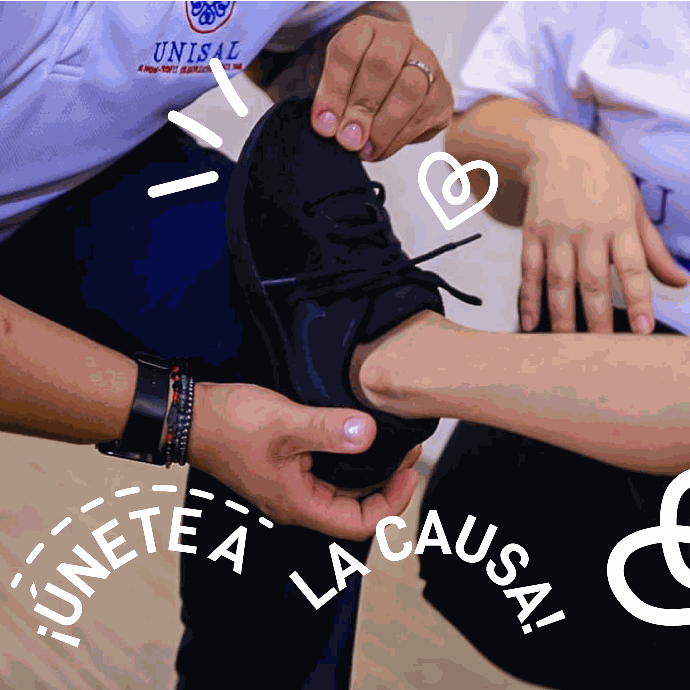
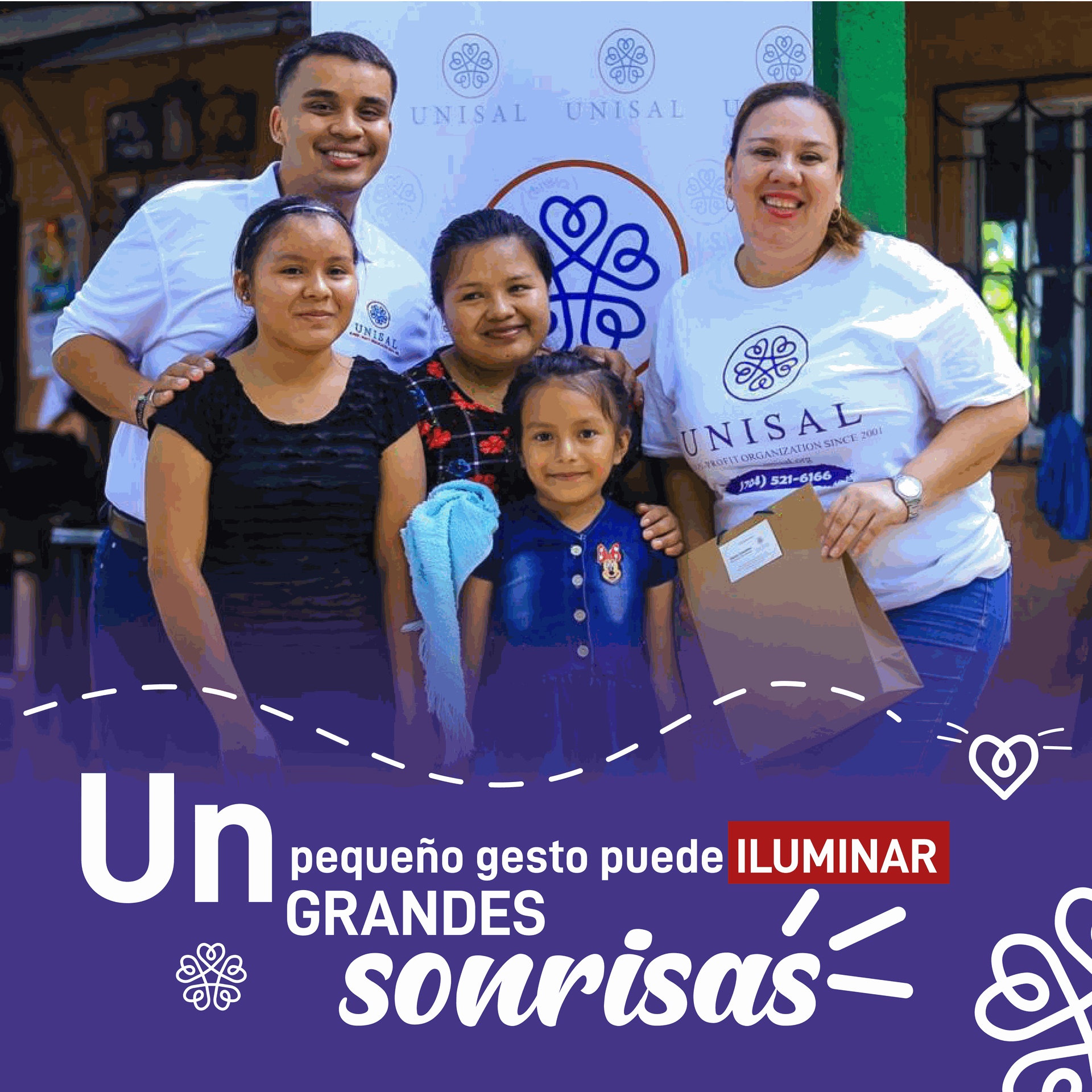
Headquarters and Offices
- Charlotte, NC, USA (Headquarters).
- Boston, MA, USA.
- Dallas, TX, USA.
- San Salvador, El Salvador.
Headquarters
Visit us now
- Office Hours: Mo - Fr: 9am - 5pm / Sa: 9am - 2pm
- 3715 Latrobe Dr, STE 630 · Charlotte NC 28211, USA.
- +1 (704) 521-6166
- [email protected]
The UNISAL Family
All of our work has been possible thanks to the active participation of our community, among whom are Volunteers, Collaborators, Media, Churches, Schools, Mobile Consulates and other organizations, who with their generous support have helped our beneficiaries in Charlotte, Greensboro, Winston Salem, Asheville, Burlington, Salisbury, Kannapolis, Concorde, Monroe, Statesville, Gastonia, Durham, Raleigh, Atlanta, Boston, Washington D.C., Chicago, Maryland, Virginia, Dallas, for more than 20 years of continuous work.
We thank everyone for having been and continuing to be part of the UNISAL family.
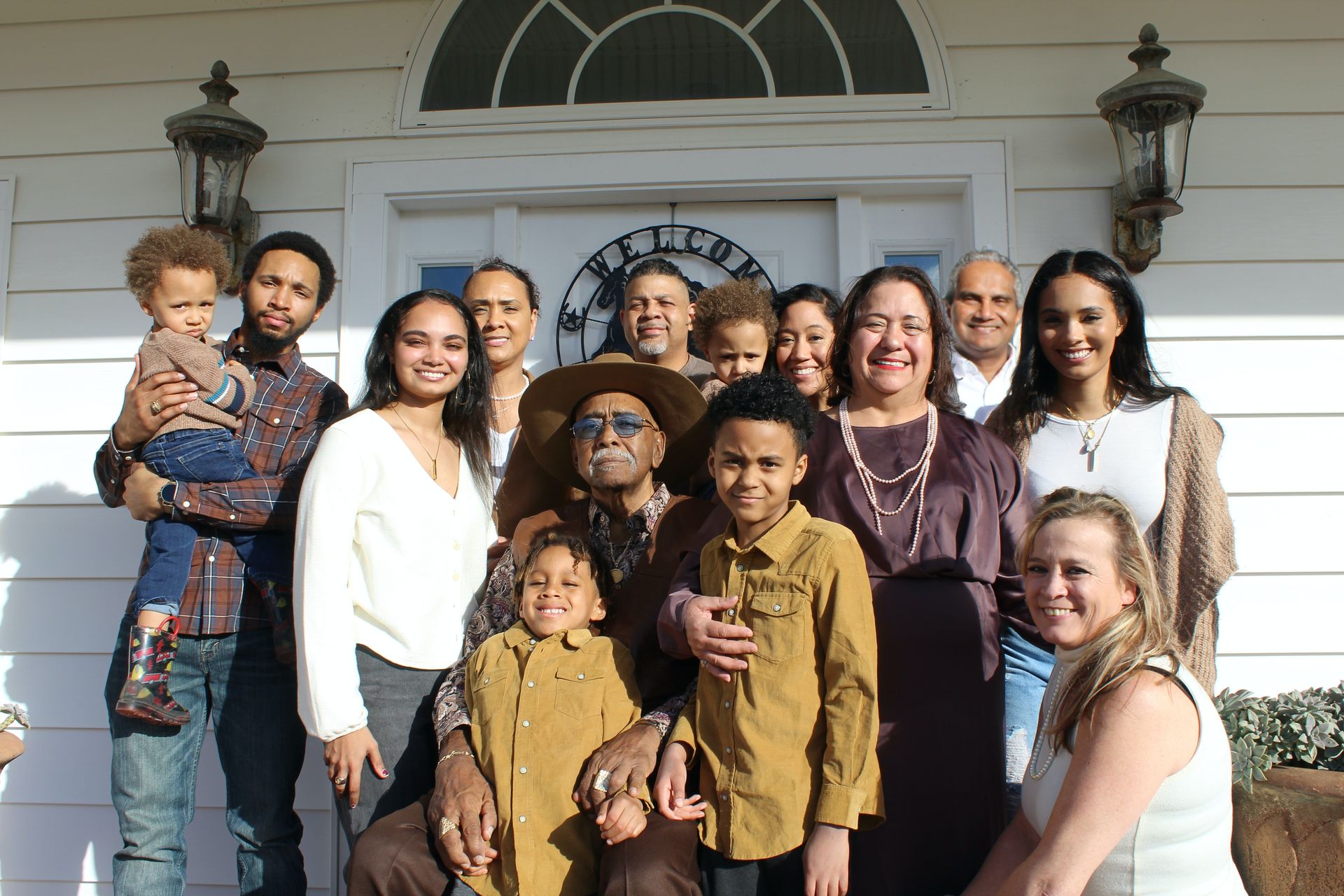
Ana Miriam Carpio Vázquez
President & Founder.
Alberto Vázquez
Vice President.
Lorena Carpio de Estrada
Executive Director.
Sandra Basto
Administrative Coordinator of Programs & Projects.
Angel Serrano
Donations Coordinator.
Katherine Cuellar
Immigration Specialist & Accounting Services.
Yanira Cuellar
Administrative Technical Assistant & Customer Service.
Valentino Lizarazo
IT Consultant.
1 - Life Skills
Life skills education seeks to improve the ability to live a healthier and happier life. It is defined as “a person's ability to successfully cope with the demands and challenges of daily life” World Health Organization (WHO, 1999). The life skills of each person are made up of their habitual reactions and the behavioral patterns that they have generated during the process of learning specific knowledge, developing their potential and skills required for adequate participation in social life.eep your files in one place.
The UNISAL program on life skills has been designed with the purpose of raising awareness, informing, educating, promoting and generating commitments in families, caregivers, teachers and Latino communities residing in the United States, in the use of practices and attitudes aimed at non-violence, peace, respect.
Through a series of workshops and group trainings, it seeks to help participants understand the importance of key aspects in life, such as: self-esteem, communication, conflict resolution, health and personal finances.
Some fundamental skills tools of this program are:
• Personal Finance
• Integral Health
• Communication
• Gender
2 - Strengthening the English language skills
More than 1.2 million of North Carolina's nearly 10 million residents speak a language other than English at home, the vast majority of whom speak Spanish as their primary language. Of those who do speak Spanish at home, more than 40% speak English less than “very well” (state language data, 2023). In other words, 3.4% of North Carolina's total population speaks Spanish as their primary language and does not speak English well. That means there are currently almost 340,000 people facing serious challenges when trying to access services and resources in their daily lives, and the situation is getting worse as the population grows. Unfortunately, the policies and legal frameworks in place to support this community are few and far between.
Since 2002, UNISAL has been aware of this reality that our community faces.
This is how throughout history it has provided English courses for adults. Likewise, it has managed alliances with institutions and academies that support our Latino community to overcome English language barriers in North Carolina.
For UNISAL, the humanitarian aid program allows us to improve the quality of life of many people. As well as providing attention to humanitarian crises in vulnerable populations. We stand in solidarity in humanitarian emergencies of our Latin American community.
Through in-kind donations of supplies such as: clothing, shoes, food, hygiene and personal care products, toys, among others, we are improving the health, safety and protection of many Latino families.
Throughout its history, UNISAL has provided donations to a network of more than 30 beneficiaries, including churches, care centers for the elderly and children, schools, institutions dedicated to providing relief and rescue, community organizations, vulnerable communities in the United States, El Salvador, Mexico and Haiti. All this has been possible thanks to the support of alliances and strategic partners.
Thank you to our donors!
UNISAL is operating in a context of widespread and systemic inequality in North Carolina that hinders the ability of Latin Americans to integrate and succeed within the state. These inequalities exist and are perpetuated at multiple levels, including language barriers, educational differences, inequalities in health care, income, and employment opportunities.
Healthcare
As of 2022, about 21% of Hispanics in the United States do not have health insurance, and this percentage is likely higher as many Hispanics rarely seek medical care (Statista). Hispanics residing in the United States are less likely than white Americans to have health insurance and receive preventive health care (Pew Research Center).
Immigrant Rights
Federal policies aimed at addressing immigration also perpetuate challenges and inequalities for the immigrant population. Congress created Temporary Protected Status (TPS) in the Immigration Act of 1990 as a type of immigration status for people already in the country. El Salvador was the first country designated for TPS in 1990 due to a civil war. TPS recipients can legally remain in the US for a certain period of time, apply for a work permit, and may be granted travel authorization. However, TPS is a temporary benefit and does not lead to lawful permanent resident status. TPS recipients face the risk of deportation and family separation and, in some cases, could be forced to return to unsafe conditions in their home country.
UNISAL throughout history has intervened, guided and helped many Latino families in North Carolina, to promote their rights and duties in an equitable and fair manner. UNISAL represents the voice of the community and brings together key stakeholders, including elected officials, businesses and community leaders to participate and impact the communities we serve.
In an increasingly globalized world where the Internet and the way of interacting through social networks have opened the field of knowledge and have allowed us to learn about new cultures that have undoubtedly enriched society both socially and culturally, it is vitally important not to let aside our true essence, our sense of being, our origin, our history, our sense of belonging and with it our values and work from local groups and entities to protect and maintain the essence of festivals and cultural activities as the local identity of our Latin American countries.
The loss of identity of a town directly affects the lack of roots and therefore the abandonment of the towns. Towns where we were born and raised and where we shared the first years of life where family, friends and leisure time were a fundamental key to who we are as people. Values and modes of conduct that were formed in those first years of life and that will accompany us throughout our lives, wherever we live.
Knowing where we come from as a local society to value what we are and reinforce it at a collective level is a fundamental key to preserving the cultural identity of a town. UNISAL since its origins is aware that cultural identity is the set of values, traditions, symbols, beliefs and modes of behavior within a social group that establishes a sense of belonging, despite time, distance always remains in the memory even when not living in the country of origin.
The Salvadoran community abroad has been one of the main communities served by our organization. The Salvadoran easily forgets his traditions and customs, especially ancestral ones, even natural speech, and adopts idioms from other cultures, thereby hiding his true identity, which leads us to deduce that Salvadorans are easily permeable to transculturation. That is why every year commemorative activities and celebrations are held to the country.
Cultural Events
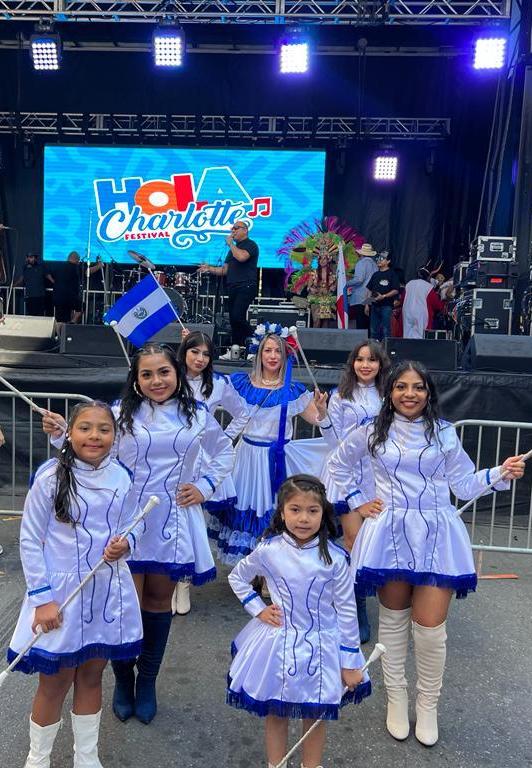
Human beings are social by nature and need moments of tribute both at the family level and at the collective level, as they reinforce the sense of belonging to the town or community. Knowing why festivals are held in a certain way, their symbolism and what they represent at a collective level for the community is essential to value, protect and defend them over time.
UNISAL for the last 10 years has held and participated in cultural events in the city of Charlotte, demonstrating the Salvadoran culture to all residents of the state, showing their culture, customs and traditions.
UNISAL Folklore Dance Group
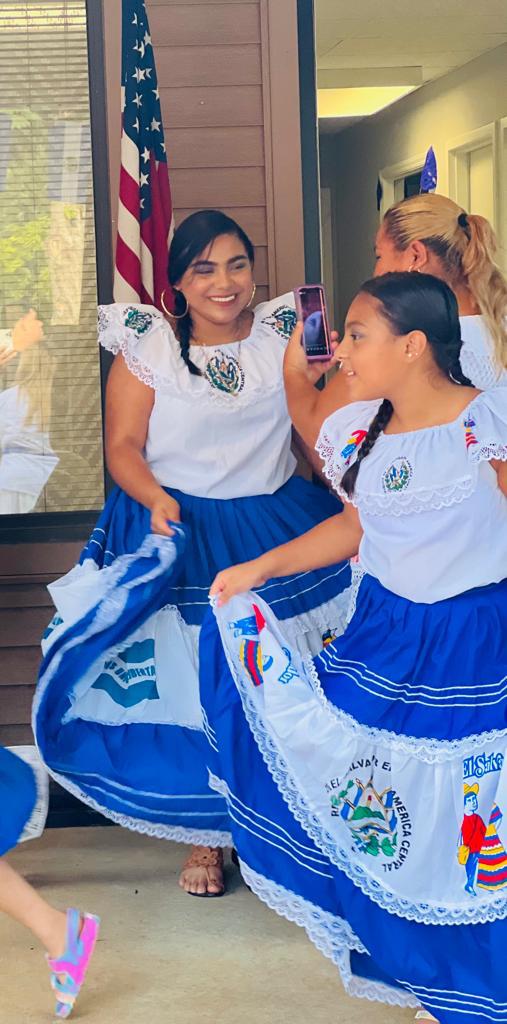
It demonstrates the cultural identity and autonomy of each town. It is a way to remember important historical events and a fun way to spread the country's values, it remembers our roots, maintains our memory and our history.
The objective is that the new generations know the reason for the holidays, live them with joy, and actively participate in the formation of the cultural identity of our Latin American countries, especially El Salvador, so that they feel honored to receive such an important heritage.
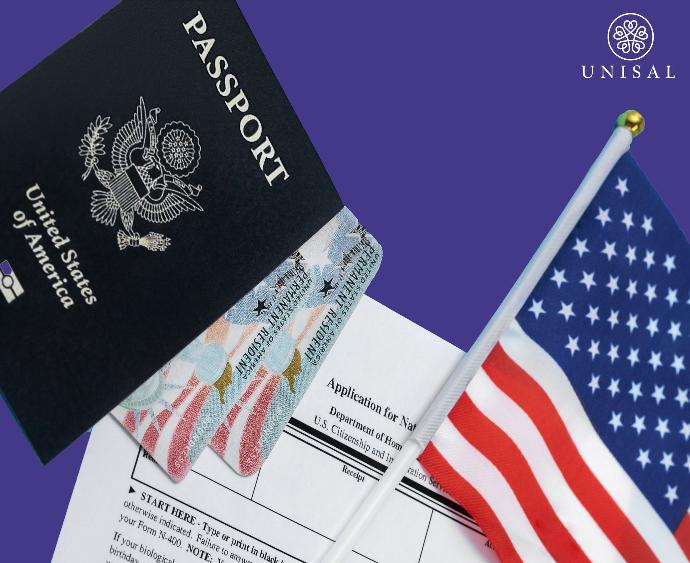
A UNISAL Immigration Services helps reunite families who have been divided by international borders or mixed immigration statuses. We work with immigration attorneys who are accredited by the Board of Immigration Appeals of the Department of Justice.
We offer a wide range of low-cost services designed to meet the needs of someone at any stage of the immigration process:
Services include, but are not limited to:
• Low Cost Consultations.
• Legal Status Adjustments in the USA
• Citizenship/Naturalization
• Deferred Action for Childhood Arrivals (DACA) Renewals
• Green Card Renewals (I-90 permanent resident card renewal)
• Work Permit Renewals (TPS)
• Travel Permits
• Family Requests
• Consular Processing
• Adjustment of Status
• U Visas
UNISAL is committed to providing quality, affordable, accurate, timely and personalized services to meet your immigration needs.
Please contact our offices for any immigration processes you do not see on this list.
UNISAL guides and offers a series of financial services to the entire Latin community in the United States, at low and no cost, providing quality, affordable and accurate services.
We offer the following services:
• Personal Tax Preparation (TAXES): With more than 20 years of experience, we have provided personalized advice on tax return issues with W-2 forms and 1099 forms, among others.
• Corporate / Commercial Tax Preparation (TAXES): No matter how big or small your company is, we provide the best advice and strategies to help you with your tax filing.
• Corporation Registrations.
• W7 Opening/Renewal.
• Formal Accounting Services for entrepreneurs.

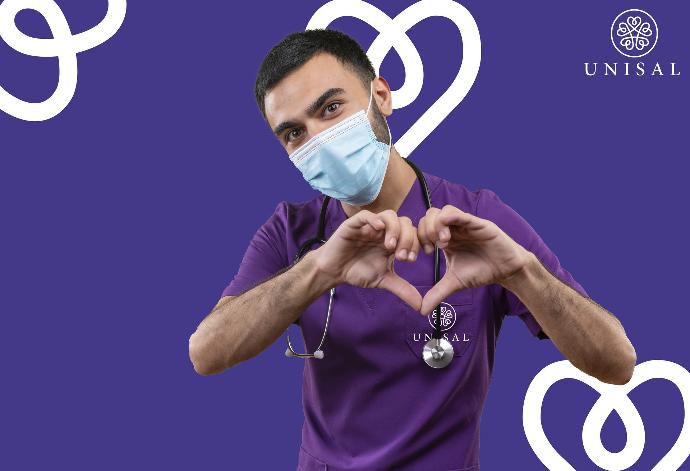
UNISAL understands that having health insurance is very important, which is why it provides free advice to guide you on the best alternatives in the health market.
Let us help you apply for your health insurance and life insurance solution for you and your family.
G E T F R E E H E L P !
We will help you apply for:
• Marketplace Health Insurance
• Acquisition of Life Insurance
• Acquisition of Retirement Insurance.
• Powers of Attorney with Salvadoran Lawyers.
• Translations
• Public Notary.
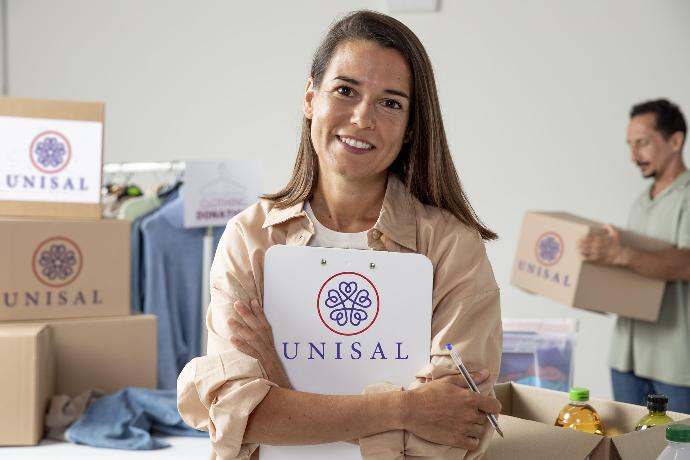
When community legal services are scarce, UNISAL provides the quality representation our community requires.

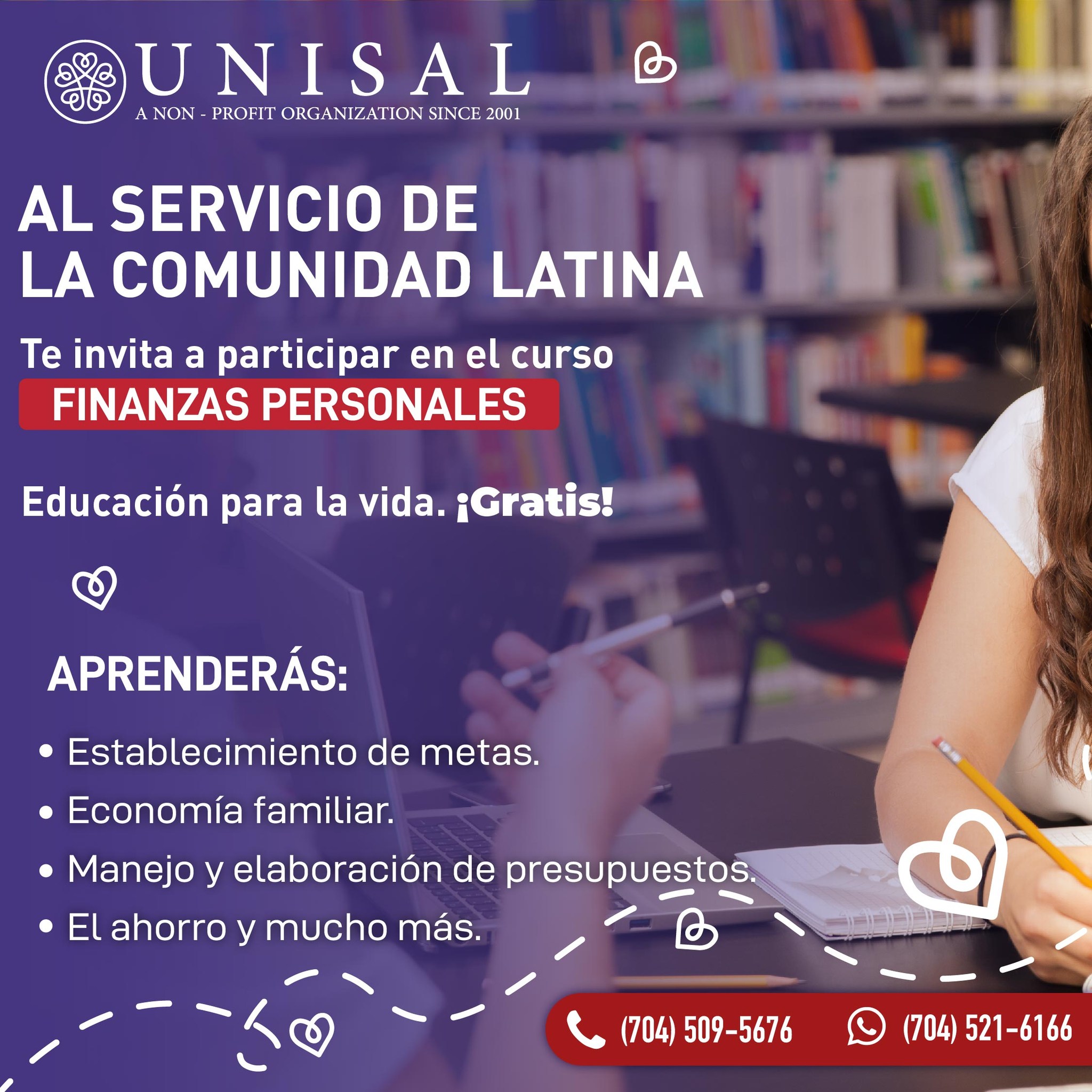
.
🌟 No dejes pasar esta oportunidad para fortalecer tu futuro económico. ¡Inscríbete ahora mismo#UNISAL
Consulta con nosotros.
📱(704) 521-6166
☎️(704) 509-5676
#EducaciónFinanciera #CrecimientoPersonal #UNISAL

.
🌟 No dejes pasar esta oportunidad para fortalecer tu futuro económico. ¡Inscríbete ahora mismo#UNISAL
Consulta con nosotros.
📱(704) 521-6166
☎️(704) 509-5676
#EducaciónFinanciera #CrecimientoPersonal #UNISAL
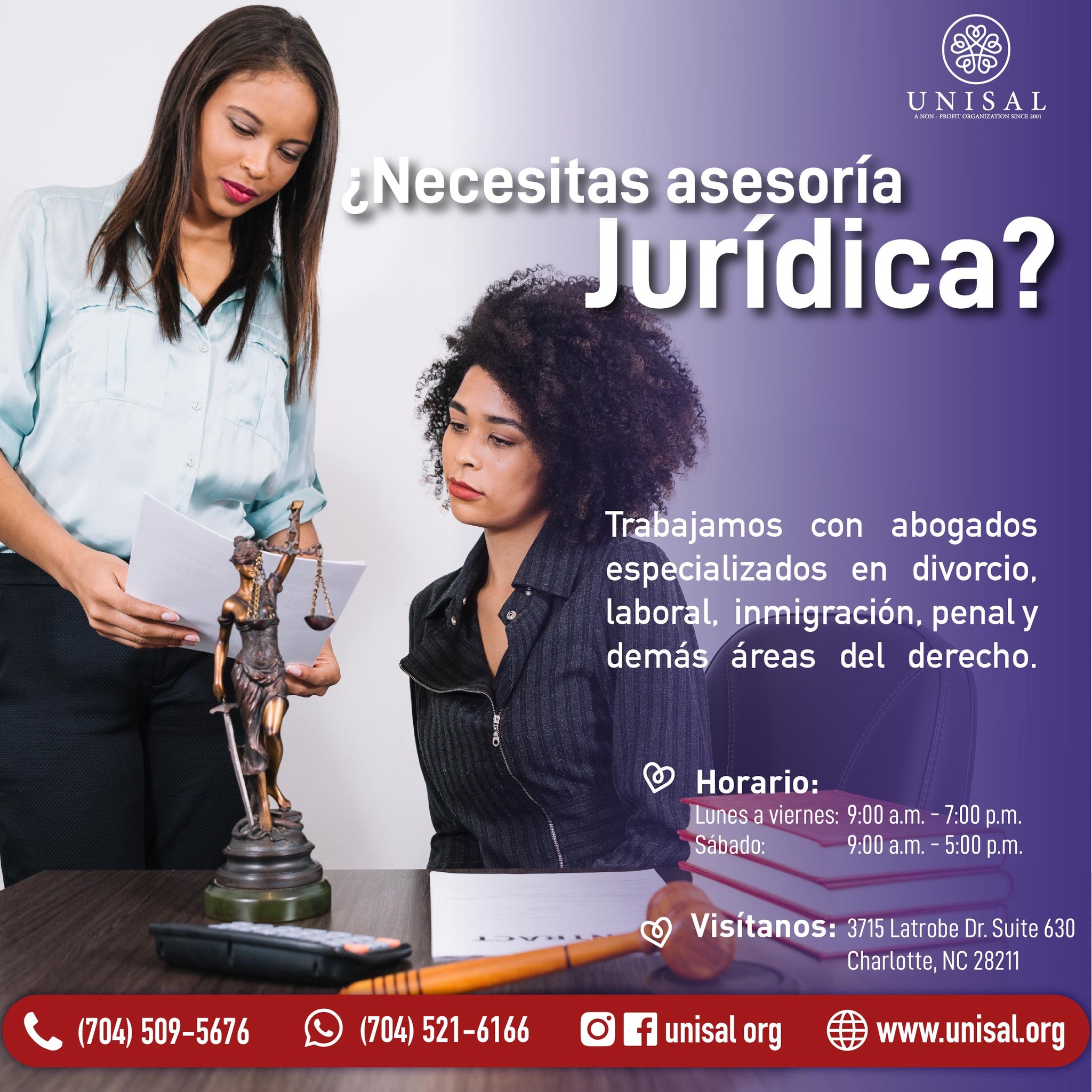
En UNISAL ofrecemos asesoría jurídica experta para resolver tus preocupaciones legales. No enfrentes tus problemas solo,
.
¡contáctanos hoy mismo y deja que te guiemos hacia la solución!
📱704 521 6166
☎️704 509 5676
#UNISAL

En UNISAL ofrecemos asesoría jurídica experta para resolver tus preocupaciones legales. No enfrentes tus problemas solo,
.
¡contáctanos hoy mismo y deja que te guiemos hacia la solución!
📱704 521 6166
☎️704 509 5676
#UNISAL

Puedes escribirnos por WhatsApp
Start with the customer – find out what they want and give it to them.
By donating to UNISAL, INC, you are strengthening the Hispanic community. Your generosity ensures that vulnerable members of our community have the support and resources they need to become self-sufficient.
1. Financial Support: Your financial contribution will help cover the administrative and operational costs of our organization.
2. In-kind donations: We welcome donations of goods or services that can improve the quality of life of others or be used in fundraising efforts.
3. Volunteering: Consider contributing your time and skills to support logistics, coordination, or other essential tasks at events.
With your contribution you are financing our programs and projects such as: Food Basket, Shoes for Children and Youth, Life Skills, Personal Finances, Cultural Festivals, Folklore Group, Advocacy on Immigration issues, Health, Employment and much more.
Donations to UNISAL are eligible for multiple tax credits in the United States.
To be successful your content needs to be useful to your readers.
Start with the customer – find out what they want and give it to them.
